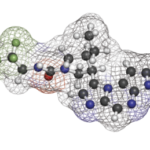(Reuters Health)—A once-daily 15 mg dose of upadacitinib for rheumatoid arthritis (RA) has similar rates of malignancies, serious infections, major adverse cardiovascular events, and venous thromboembolic events as other Janus kinase inhibitors (jakinibs), results from phase 3 clinical trials suggest.
Researchers examined data on treatment emergent adverse events among patients taking upadacitinib in five randomized phase 3 clinical trials with either placebo or active controls. Across all the trials, a total of 3,834 patients took one or more doses of upadacitinib: 15 mg (n=2,630) or 30 mg (n=1,204) for a total of 4,020.1 person-years of exposure to the drug.
The 15 mg dose of upadacitinib had higher risk of herpes zoster than methotrexate (hazard ratio [HR] 2.997) and adalimumab (HR 3.211). This dose also had a higher risk of creatine phosphokinase elevations than placebo (HR 2.314), methotrexate (HR 2.701) and adalimumab (HR 2.588).
Meanwhile, the 30 mg dose of upadacitinib had a higher risk of herpes zoster and creatine phosphokinase elevations than placebo (HR 4.427 and 2.679, respectively), methotrexate (HR 3.023 and 5.578, respectively) and adalimumab (HR 4.989 and 3.073, respectively). This higher upadacitinib dose also had a greater risk of serious infections than placebo (HR 3.243) and adalimumab (HR 1.927).
“Based on the phase 3 development program and the long-term extension studies this clearly demonstrates that the benefit of upadacitinib outweighs the risk,” says lead study author Stanley Cohen, MD, medical director of the Metroplex Clinical Research Center and a clinical professor at the University of Texas Southwestern Medical School, Dallas.
“Upadacitinib demonstrated significant efficacy in early rheumatoid arthritis, methotrexate incomplete responders and biologic incomplete responders,” Dr. Cohen says by email. “The safety profile other than the zoster signal is similar to what we see with biologics, and the [jakinibs] represent an oral alternative to the biologics which require injections.”
Across all the trials in the analysis, patients had been diagnosed with rheumatoid arthritis for a median of 1.2 to 6.4 years and received one or more doses of upadacitinib for a mean duration of about 1 year. The longest exposure to upadacitinib was 2.5 years; 66% of participants received the drug for at least 48 weeks and 4% took the drug for at least 96 weeks.
One limitation of the study is that researchers lacked long-term placebo data to compare with long-term use of upadacitinib, the study team notes. The study also looked at monotherapy, and researchers lacked data on long-term safety for combination therapy involving upadacitinib, they note in Annals of the Rheumatic Diseases.1



